Public Health in Amman, Jordan Review - An Amazing Experience! Past Review
By A student (University of California - San Diego / UCSD) - abroad from 06/26/2015 to 08/01/2015 with
UC San Diego Global Seminars: Amman - Public Health in Amman
I developed my own perspective on the Middle East, learned so much about health and clinical research, and
Review Photos
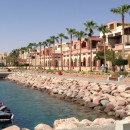
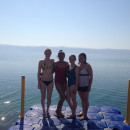
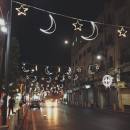
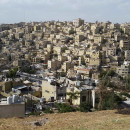
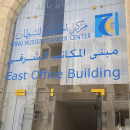
Personal Information
| How much international exposure did you have prior to this program? | 6 months+ |
Review Your Program
|
* Overall educational experience
Academic rigor, intensity, resources, etc. |
Very challenging course, involves lot of time spent reading and studying. However the material is very interesting and you will employ things you learn immediately in the clinical research project! |
|
* Host Country Program Administration
On-site administration of your program |
Dr. Bayan and her SIT staff are fantastic--so welcoming, helpful, and kind. Without them, this program would not have been nearly as wonderful. We went to all kinds of excursions thanks to the SIT staff's planning, knowledge, and experience--from the north of Jordan in Jerash and Irbid, the middle of Jordan to the Dead Sea and Mount Nebo, to the very south of Jordan to Petra, Wadi Rum, Aqaba and the Northern Red Sea. SIT is the program to trust in the Middle East. They have a great network set up there. |
|
* Housing:
How satisfied were you with your living arrangements? |
It was very convenient to live right across the KHCC (King Hussein Cancer Center) where we had our classes. There was a market down the street with all kinds of shops, food, flowers, gifts and grocery stores. However, we were promised fully furnished apartments, and our apartments were lacking in kitchenware, cleaning supplies, and other basic necessities like a shower curtain for the bathroom. We also experienced many many problems with the internet, with no reliable connection for us to do our homework mostly on google docs. However, there is talk that next year the students will be living in Abdoun, which is the nicest part of Amman (the US embassy is right there), more Western/liberal, very upscale, and close to the heart of the city. |
| * Food: |
As expected, the food was amazing in Jordan! However the tap water in Jordan is over-chlorinated and so the locals and tourists stay away from drinking tap water, but buy bottled water instead. This leads to problems with washing/cleaning vegetables thoroughly. At high-end restaurants, eating raw salads and vegetables should not be a problem, but never ever ever eat street food for fear of contamination especially with the water problem. Jordan has a mostly bread-based diet and during Ramadan, the Iftar (evening meals) are buffet style. If you are vegetarian, it will be rather tough though possible to get food. |
|
* Social & Cultural Integration:
How integrated did you feel with the local culture? |
Everyone in Jordan is extremely friendly and kind. As recommended by UCSD, all the women and men packed very conservatively for our visit to Jordan. Almost everywhere, we felt overdressed. Only working at the UNRWA clinics, conservative was the way to go to make people feel comfortable--I wore long skirts to my ankles, close-toed shoes, long collared shirts, and a headscarf (even though I am not Muslim, but just to show respect). Everywhere else outside the clinic, you could wear tighter clothes showing some more skin. At the tourist areas like Petra, Wadi Rum, the Dead Sea, and others, we were more than welcome to wear shorts and t-shirts. It is true that the local women were hijabs (even niqabs) but as visitors to the country, it was obvious that we were not from there. I suggest packing a balance of modest Western clothes and conservative ones. Wearing clothes that pay respect to the modesty of the culture makes people trust you but still throw in a few pairs of shorts at least to lounge in during the 100 degree days. The youth of Jordan are very westernized and so in areas like Abdoun is acceptable to go out in jeans and tight shirts showing skin. Yet be aware that to avoid excess attention, however, I would always suggest leaning towards the more modest side. In terms of integration, we had translators at the clinic we were working with who were our age. If you can befriend locals who will show you around, that will definitely heighten your integration with the culture. |
|
* Health Care:
How well were health issues addressed during the program? |
I had the stomach flu and a very high fever the very first week I was there and the SIT staff immediately took me to the ER at a private hospital. The doctors speak perfect English though the nurses struggled a little bit. Both SIT and the hospital took very good care of me and after following the medications, I was back to good health! There are only a few mosquitos since Jordan is very dry, but bring an anti-itching cream and maybe deet if that bothers you. I didn't need any vaccines specifically for Jordan. As for general health issues, Jordan is facing a diabetes epidemic and there is a great prevalence of smoking/smokers with cigarette and hookah use being very acceptable and widespread. |
| * Safety: |
Jordan is a very safe country. Contrary to popular Western belief, the entire area is safe and never once did we deal with any safety-related issues. Women go out often and regularly at night, though it is always advised to stay in a group. Small time thefts do not occur and the entire area is safe. For future students, I would advise coming in with an open mind. I know that there are a lot of stories about what's happening in the Middle East. While you should keep up to date on current events, don't let that stop you from coming to a very safe, secure, and friendly country to have the experience of a lifetime. None of the students in my program had any safety-related incidents. We all felt very safe whilst in Jordan. |
| If you could do it all over again would you choose the same program? |
Yes
|
Finances
|
* Money: How easily were you able to live on a student's budget?
(1 = not very easy/$200+ on food & personal expenses/week, 2.5 = $100/week, 5 = very easily/minimal cost) |
We got a 100 JD stipend every week. Meals do not cost very much at all and at the grocery store, I spent a max of 15 JD a week. The rest of the money, you could use to buy gifts for family and friends, for cab rides, for restaurants. |
| Not including program expenses, about how much money did you spend on food and other expenses each week? | 70 JD |
| Do you have any general money-saving tips for future study abroad participants? | I would suggest not eating out at restaurants very often. They are very very expensive in Jordan, and SIT will take you out to the best ones on their dime a lot anyways. You should look into eating healthy and safely at well known restaurants if you do eat, and buy food from grocery stores to stay healthy. |
Language
| * Did your program have a foreign language component? | Yes |
|
How much did the program encourage you to use the language?
0 = No encouragement, 5 = frequent encouragement to use the language |
We learned survival arabic twice during the program. This was not a language-based experience abroad, but really a health-based program. Therefore, we learned enough to get by. |
| How would you rate your language skills at the beginning of the program? | None |
| How would you rate your language skills at the end of the program? | Beginner |
| How many hours per day did you use the language? | |
| Do you have any tips/advice on the best ways to practice the language for future study abroad participants? | Taking an Arabic class beforehand will be helpful. We learned survival arabic, like learning to say hello, goodbye, how are you, ordering water, and food from a restaurant. We mostly ended up using English to speak to people or having people in our group who spoke fluent Arabic speak for us. Our translators and doctors helped us in the clinics, but it would be a huge benefit to know some Arabic. |
Other Program Information
|
* Where did you live?
Select all that apply |
|
|
* Who did you live with?
Select all that apply |
|
|
* Who did you take classes with?
Select all that apply |
|
| About how many local friends did you make that you will likely keep in touch with? |
A Look Back
| * What did you like most about the program? |
|
| * What could be improved? |
|
| * What do you know now that you wish you knew before going on this program? | Bring gifts! From the US for the people you meet and become lifelong friends with there. They can be small gifts, but make it something they'll be proud to show from their American friend. It's such a nice way to say thank you and show your appreciation for their help/friendship during your time abroad. |








